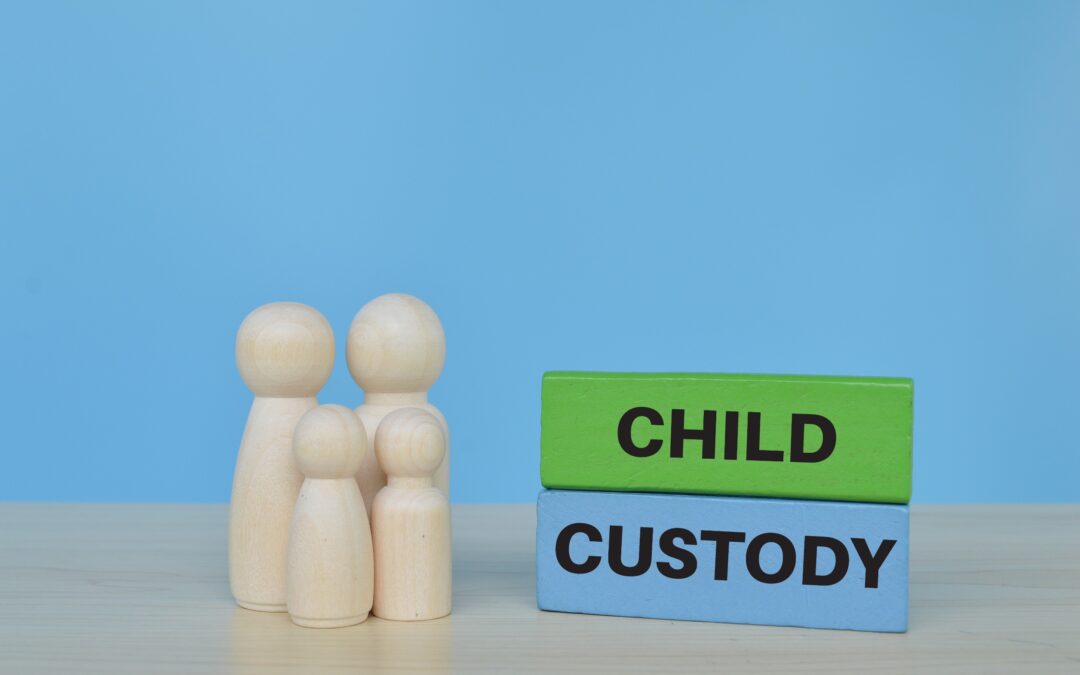Custody negotiations can be one of the most challenging experiences for any parent. The stakes are high, as the outcome directly impacts the well-being and future of the child involved. Effective dialogue is important in reaching an agreement that benefits both the kid and the parents.
Read on to explore the top strategies to navigate custody negotiations successfully, focusing on approaches that prioritize your child’s needs.
Understanding the Basics of Child Custody
Before diving into strategies, you must understand the basics of the custody process. Custody is a legal term that refers to the care and supervision of a child by an individual or entity. The process is not limited to just parents but can also involve other parties, such as grandparents or a legal guardian. The focus is to determine the duty to care for the child and the right to make decisions on their behalf. There are two main types, namely:
- Physical Custody: This refers to the parent the kid will live with and where their primary residence is established.
- Legal Custody: It involves decision-making authority over the child’s support including upbringing, education, healthcare, and religious instructions.
Custody can be joint, where both parents share responsibilities, or sole, where one parent has exclusive rights. Understanding these distinctions and the specific laws in Florida is important for effective negotiations.
Strategies for Successful Child Custody Negotiations
Successfully negotiating custody requires a thoughtful approach that prioritizes your kid’s well-being while fostering a cooperative relationship with the other party. Here are a few strategies you can consider:
Focus on the Child’s Best Interests
Courts consistently emphasize this standard when making childcare decisions. If you’re a parent or legal guardian, you may have to adopt the same approach. You should be willing to make personal sacrifices and show that the child’s stability and happiness are paramount.
Factors that courts typically consider include the child’s age, health, emotional ties to each parent, and each parent’s ability to provide for their needs. You should work towards a solution that supports the kid’s overall happiness by keeping their best interests at the forefront.
Communicate Effectively
Open, honest, and respectful communication helps build trust and reduces potential conflict. Focus on establishing clear lines of communication and using neutral, non-confrontational language to ensure productive discussions. When disagreements arise, it is important to address them calmly and constructively.
Techniques such as active listening, where each parent truly hears and acknowledges the other’s concerns, can help resolve disputes amicably. Following these will help reach a fair custody agreement and set a positive example for the kid.

Be Prepared and Organized
Parents and guardians should gather all relevant documents and evidence, such as school records, medical reports, and communication logs. You can start by creating a comprehensive parenting plan that outlines proposed custody and visitation schedules, decision-making responsibilities, and methods for resolving future disputes.
Organizing your thoughts and arguments in advance can help present your case more effectively during negotiations or in court. Being well-prepared demonstrates your commitment to the child’s welfare and readiness to take responsibility.
Consider Mediation and Collaborative Law
Mediation involves a neutral third-party mediator who helps parents communicate more effectively and reach a mutually agreeable solution. This process can be less adversarial than going to court, allowing parents to retain more control over the outcome. Collaborative law involves all parties, including the attorneys, working cooperatively to resolve custody issues without litigation.
These approaches can be particularly beneficial in maintaining a positive co-parenting relationship and prioritizing the child’s needs. Consulting a custody lawyer in Tampa, FL, can help determine whether these methods suit your situation.
Be Flexible and Open to Compromise
Holding onto specific demands can lead to prolonged conflicts and may not serve the child’s best interests. Being open to different arrangements and considering the other party’s perspective can ensure more productive discussions.
Visitation schedules, holiday arrangements, and decision-making responsibilities are areas where compromise might be necessary. Approaching negotiations with a flexible mindset allows for creative solutions that accommodate the needs of both parents and children, leading to a more amicable custody agreement.
Seek Professional Advice and Support
A reputed family law or child custody lawyer in Tampa, FL, can provide valuable insights into the legal aspects of your case and help develop a strategy tailored to your specific circumstances. Additionally, child psychologists and counselors can offer guidance on addressing the emotional and psychological needs during this challenging time.
Focus on building a support network of friends, family, and professionals for emotional and practical assistance. They can help you stay focused and resilient throughout the negotiation process.
How Contacting an Attorney Helps
An attorney can be crucial in navigating the complexities of custody negotiations. They can help you:
- Understand Your Rights: An attorney can help you fully understand your rights and obligations, making the legal process less daunting.
- Gather Evidence: They assist in gathering and organizing necessary evidence, which can strengthen the case
- Craft Argument: Legal professionals help build a compelling argument for the client’s desired custody arrangement. They represent your interests effectively in court or during mediation.
- Get Strategic Advice: You can get strategic guidance tailored to your specific situation, helping you make informed decisions.
- Mitigate Conflicts: Professional support from an attorney can mitigate conflicts, foster more productive negotiations, and facilitate a custody agreement that prioritizes your child’s best interests.
- Understand Procedures: Lawyers can navigate the procedural complexities of the court system, ensuring they meet all the legal requirements and deadlines.
- Get Emotional Support: Having an attorney to guide you can help reduce your stress. They can also connect you with additional resources, such as psychologists or financial advisors. This additional legal and emotional support allows you to focus on your kid’s welfare.
- See the Bigger Picture: An attorney offers an objective perspective, helping you see the bigger picture and avoid emotionally driven decisions that might not benefit your case. They help plan for contingencies, making sure the custody agreement is sustainable and adaptable to changing circumstances.
Remember, the child’s well-being should always be at the heart of every decision and action during custody negotiations. We at Tampa Divorce, Family Law & Divorce Lawyer can help ensure it and offer professional assistance. Call us today at 813.370.0893 or visit us at 13057 W Linebaugh Ave Ste 102, Tampa, FL 33626!


